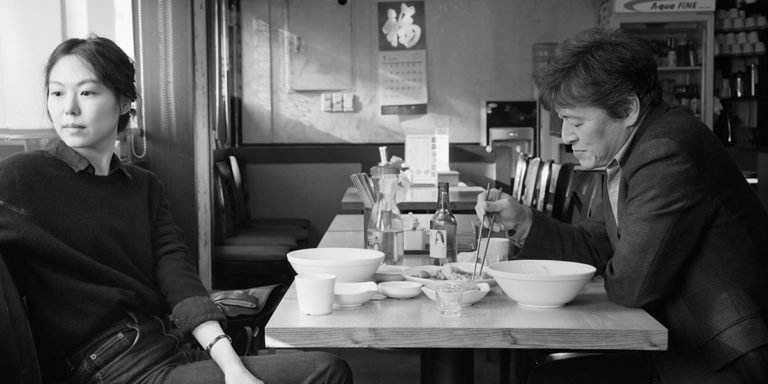When I was a child, my father used to take me to our local video store to rent movies on Friday nights. It wasn’t even a video store really, it was more of a convenience store that also happened to offer movie rentals because that’s the best that the small town I grew up in had to offer. For $2.75 a pop you could rent a VHS copy of a film of your choice but you had to make sure it was back in time by 6 P.M. the next night, otherwise you’d be on the hook for a late fee. I remember one particular such excursion vividly even though I might’ve only been 5 or 6 years old at the time because there was a film that I desperately wanted to rent but no amount of cajoling on my part could convince my father that I was mature enough to handle the movie I so desperately wanted to watch that night. You see, the box cover made it seem like the film was much darker than it actually was. That film was Edward Scissorhands. There was just something about the image of Johnny Depp bathed in blue light, with his hair all up in tatters and wearing a sorrowful look on his face that somehow spoke to my 6-year-old self and I just had to watch that movie but my father would have none of it unfortunately. He mistook it as being some sort of macabre horror movie. I no longer remember what movie we did end up renting that night but I do know it wouldn’t be until years later that I would finally get the chance to watch Edward Scissorhands and luckily, it was well worth the wait.
Tim Burton was born on August 25, 1958. As a kid growing up in Burbank, California, Burton never seemed to fit in anywhere. He was shy and introverted and making friends never came easy to him so instead of spending his time socializing with kids his own age Burton focused most of his attention on the things that interested him the most like monster movies and animation which would go on to serve as major influences on his later filmmaking career. He was particularly fond of the work of Ray Harryhausen who’s special effects work on films like Mighty Joe Young and Jason and the Argonauts would go on to become a major influence on many of Burton’s contemporaries as well. Another major influence that would help shape and mold Burton’s later career was the work of the great Vincent Price. Burton would later go on to cast Price in Edward Scissorhands in what eventually became the legendary actor’s final film role. After high school, Burton went on to study animation at the California Institute of the Arts and upon graduation was hired by the Walt Disney Company, located in Burton’s very own hometown of Burbank, to work in their animation department. It’s while working at Disney that Burton was infamously let go from the company after making the live action short film Frankenweenie in 1984. Faith would intervene however, as it was on the strength of Frankenweenie that Paul Reubens decided to hire Burton to direct the first film adaptation of Reubens’ popular character, Pee-wee Herman and the rest, as they say, is history.
What’s interesting about Tim Burton is that he’s one of the few filmmakers of his generation that got his first big break in Hollywood through a major movie studio as Pee-wee’s Big Adventure was distributed by Warner Bros. Many of Burton’s contemporaries like Spike Lee, Sam Raimi and the Coen brothers got their feet through the door through various independent movie companies. Even Ron Howard and James Cameron got their start working for Roger Corman’s independent distributor New World Pictures. It was almost as if Burton was the right director at the right time and all the puzzle pieces fell into place in the summer of 1985 when Pee-wee’s Big Adventure came out. The surprise success of that film propelled the then 26-year-old Burton among the most highly sought-after young director’s working in Hollywood. His next project Beetlejuice would be the one that would propel him among Hollywood’s very elite. When you think about it, Beetlejuice was probably one of the most truly bizarre films to come out of a major movie studio during the 1980s. I mean, the film’s two main characters die within the first 5 minutes of the film and its title refers to a ghoulish figure played by Michael Keaton with bright green hair, wearing a pinstripe suit who can only be summoned when saying his name out loud 3 times. Just the fact that the film even got greenlit astonishes me, and yet somehow the gamble paid off huge for everybody involved. Upon release in the early spring of 1988, the film went on to become a huge box office smash and would help launch the acting careers of Alec Baldwin and Winona Ryder. The film also helped breathe new life into Michael Keaton’s fledgling career as his more recent films were seeing increasingly diminishing returns. Keaton and Burton would reunite the following year for a little film by the name of Batman.
In the pre-internet age, you would think a controversial casting choice wouldn’t be met with nearly the upheaval that is it today but you would be dead wrong in assuming so because when Michael Keaton was cast to play Batman in the 1989 feature film adaptation of the beloved DC Comics superhero it was met with an intense fan backlash. After all, Keaton had originally made a name for himself in comedic films such as Night Shift and Mr. Mom so fans didn’t think too kindly of him being cast to play The Dark Knight and they made those opinions known loud and clear through literally thousands of letters (yes, they still sent those back then) that were sent to Warner Bros. In order to protest the decision to cast him as Batman. But you know what, Burton didn’t give a fuck. He had worked with Keaton before and he had seen in his eyes what the actor was capable of doing and, well, he was right. Batman came out that summer and smashed all kinds of box office records igniting a phenomenon known as “Batmania” where it seemed like the entire pop culture landscape had fallen under the spell of the Batman. The unprecedented success of Batman lead to Burton being granted perhaps the single most creative freedom that he’s ever known in his entire filmmaking career. This is where we come full circle as the film that Burton chose to make with all that freedom was a passion project of his and perhaps his most personal film ever, Edward Scissorhands.
In my mind, Edward Scissorhands is unquestionably Tim Burton’s finest filmmaking achievement. The film’s screenplay was adapted into a full screenplay by Caroline Thompson from Burton’s own original story idea. It would be heavily inspired by Burton’s childhood sense of isolation growing up in suburban Burbank as well as his love for monster movies, particularly the classic Universal monster movies of the 1930s. Also noteworthy, Edward Scissorhands marked the first collaboration between Burton and actor Johnny Depp who would go on to become an extremely prominent figure in a lot of Burton’s later films as the two went on to work together on a grand total of 8 films. What my father failed to recognize on that faithful day at the video store was that Edward Scissorhands wasn’t a horror movie at all but instead a richly textured satire of everyday suburban life as seen through the eyes of a lonely and confused young man. Years later, when I finally got around to watching the film I saw a lot of myself in Edward, so much so that I couldn’t help but connect to the character on a deeply emotional level. It certainly helped that Depp went to such great lengths to mold the character in such an irresistibly sympathetic way with his performance. In Depp’s scissor-tipped fingers, Edward is a puppy dog disguised as a monster. While the razor sharp objects he’s burdened to carry around forever tell a different story, you can tell by looking into Depp’s eyes that Edward means no harm to anyone and is only seeking the company of another human being even though he himself might not be one. Edward Scissorhands also features perhaps one of cinema’s all time greatest romances referring to the one shared by Edward and Kim Boggs, the teenage daughter of the family that invites Edward into their home and away from the cold isolation of the mansion atop the hill where he was first created. The film is as close to a masterpiece as Burton would ever achieve.
After the success of Edward Scissorhands, Burton would find himself going back to the well once more with Batman Returns. While the 1992 sequel to the hugely successful Batman would not see nearly the rapturous response of the original (it’s been criticized in some circles for being excessively dark) in my eyes it’s still clearly the superior film. Batman Returns cuts a lot of the fat that’s found in the 1989 Batman by disposing of the Vicki Vale character and replacing her with Michelle Pfeiffer’s much sexier and much more textured Selina Kyle as Bruce Wayne’s principle love interest. Vale was essentially just a damsel in distress stock character while Kyle has layer upon layer in which to peel back from so that’s a trade I would make every day of the week and twice on Sunday. While one could argue that Danny DeVito’s Penguin is a poor substitute to Jack Nicholson’s Joker, I’m actually quite fond of DeVito’s performance as The Penguin. I like the different approach that Burton took with the character as well turning him from a sleazy organized crime figure into an orphaned sewer dweller with a legion of circus performers doing his bidding. Christopher Walken shows up playing the delightfully slimy Max Schreck character who’s trying to get DeVito’s Penguin character elected for mayor of Gotham City which is all the more prescient today because the Schreck character was apparently modeled after none other than Donald Trump. There’s also something about the film’s holiday setting that’s a refreshing change of pace for the superhero genre. The chaos unfolding onscreen is accentuated all the more by freshly fallen snow and the vast array of Christmas lights decorating the film’s busy Gotham streets. It’s almost like watching the after effects of a child shaking a snow globe.
I’ve made my feelings known by now that I consider Edward Scissorhands to be Tim Burton’s crowning achievement but if I were forced to pick a close second, it would have to be Ed Wood. Ed Wood came out in 1994 and reunited Burton once again with Johnny Depp. The film was a highly fictionalized biopic of the life of the infamous film director generally regarded as the “worst director of all time”. The film was Burton’s first shot in glorious black & white as a means of capturing the look and feel of the average Ed Wood movie of the 1950s. There are two things that Depp’s version of Ed Wood loves more than anything, movies and wearing women’s clothes and the beauty of Burton’s film is how it tackles both of those interests with the utmost sensitivity and sincerity. Yes the film does succeed at using Wood’s propensity for cross-dressing as a means of generating humor but it never judges him for it. We in the audience are never laughing at Depp’s character but always alongside him. The same feeling applies when the film highlights Wood’s obvious lack of talent for filmmaking by instead focusing on his desire to succeed in the movie industry and his undeterrable optimism is infectious. So is his deep abiding loyalty to his friend and frequent collaborator Bela Lugosi. Martin Landau lights up the screen with his powerfully moving portrayal of a Lugosi nearing the end of his life, down on his luck and addicted to morphine. Through Lugosi, the film highlights Hollywood’s well-documented propensity for chewing up and spitting out their once beloved. Ed Wood is arguably Tim Burton’s last great live action film as of this writing.
Since Ed Wood, Burton’s output has been a pretty mixed bag but not a whole lot really stands out. He’s seen his fair share of enormous box office hits (Charlie and the Chocolate Factory, Alice in Wonderland) and misses (Dark Shadows, Mars Attacks!). Some of his films have earned critical acclaim (Big Fish, Sweeney Todd: The Demon Barber of Fleet Street) while others…not so much (Planet of the Apes). If there’s one aspect of Burton’s post-Ed Wood career worthy of highlighting it would be his work in animation, which is not surprising when you consider that that is where his roots lie after all. It’s often mistakenly assumed that Burton directed The Nightmare Before Christmas, however It was actually directed by Henry Selick and the screenplay was written by Burton’s old friend Caroline Thompson. With that being said, Burton’s fingerprints are still all over the film as the film’s producer he and Selick worked hand in hand in getting the film made and the end result is undeniably Burtonesque. 12 years after The Nightmare Before Christmas came The Corpse Bride with Burton sitting in the director’s chair this time around. The film starred Burton’s two most frequent muses, Helena Bonham-Carter (Burton’s ex-partner) and, of course, Johnny Depp. In typical Burton fashion, Corpse Bride is dark and gothic but at its core the film is a tragic love story. It’s also probably Burton’s most emotionally moving film since Edward Scissorhands. In one of cinema’s greatest ironies, nearly 30 years after getting fired from Disney for making the live action short Frankenweenie Burton to returned Disney in order to turn that same film into a full length animated feature. The film is another fitting tribute to the Universal monster movies that made Burton fall in love with cinema for the first time.
If there’s one thing for certain about Tim Burton it’s that he’s a fiercely loyal filmmaker. I’ve already alluded to the amount of times he’s worked with Johnny Depp and Helena Bonham-Carter over the years but he’s also notorious for working repeatedly with many of the same actors on a lot of his films. For instance, over the years he’s worked on multiple occasions with the likes of Paul Reubens, Catherine O’Hara, Winona Ryder, Michael Keaton, Jeffrey Jones, Martin Landau, Sarah Jessica Parker, Christopher Lee and Michelle Pfeiffer to name but a few. I guess the lesson here is that if you’re an actor in Hollywood looking for regular work then I suggest you have your agent give Burton a call because if he likes you then he’s liable to use you over and over again. Arguably Burton’s most important collaborator over the years has been Danny Elfman who’s instantly iconic musical arrangements have helped make Burton’s movies what they are. Would Beetlejuice be as good as it is without Elfman’s memorable horn arrangements? Would Edward Scissorhands be as emotionally affecting as it is without Elfman’s haunting score playing in the background? There are all questions I’m happy we don’t have to answer. Over the course of 15(!) films working together, Burton and Elfman have managed to find a bizarre synchronicity with one another that’s managed to transcend many of their films. Theirs is truly one of cinema’s greatest partnerships.
In conclusion, I’d like to raise a toast to Tim Burton on today, the day of his birthday in order to wish him a very happy birthday and to thank him for all the wonderful movie memories over the years. If I ever end up having children of my own one day, I’ll be sure never to deprive them of any of his films.

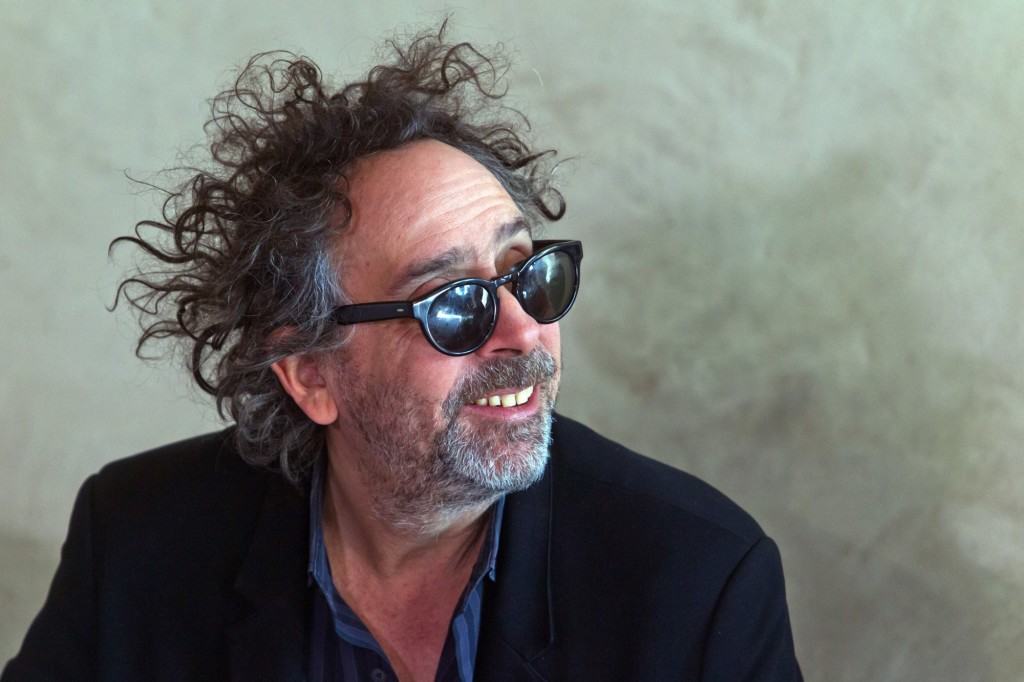
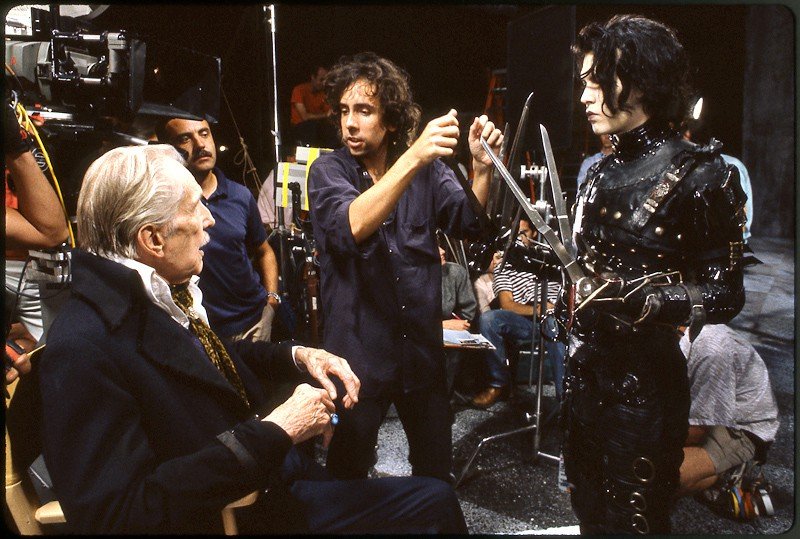
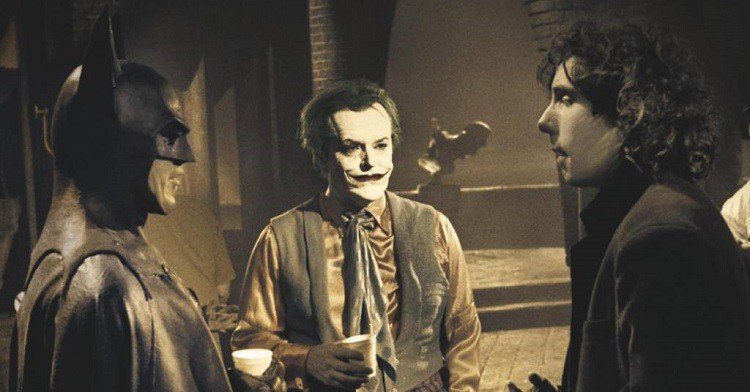
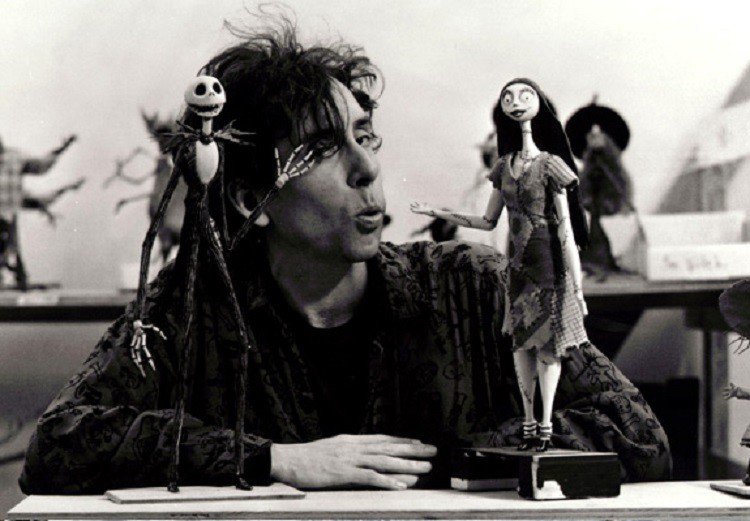
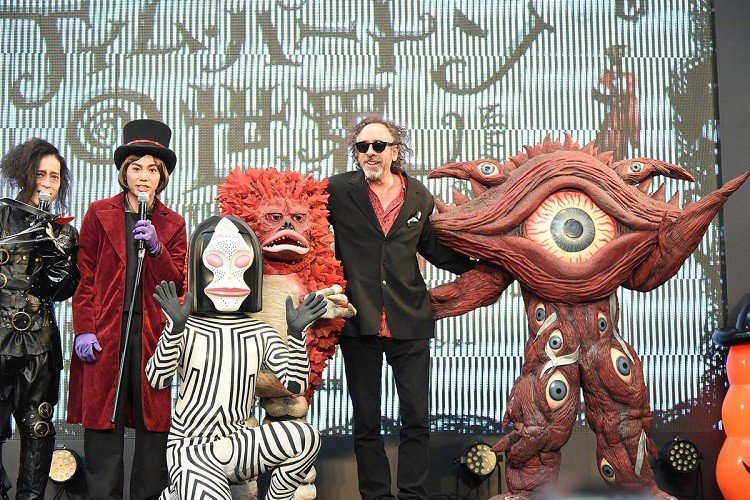

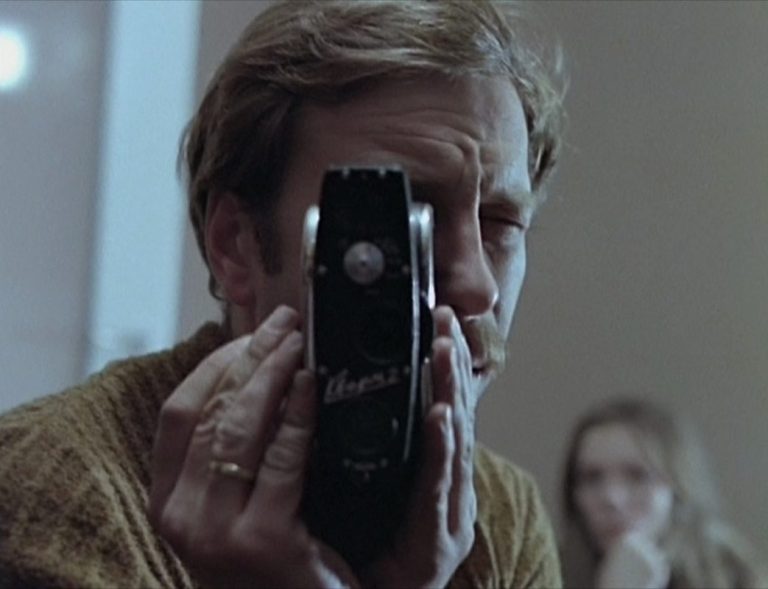
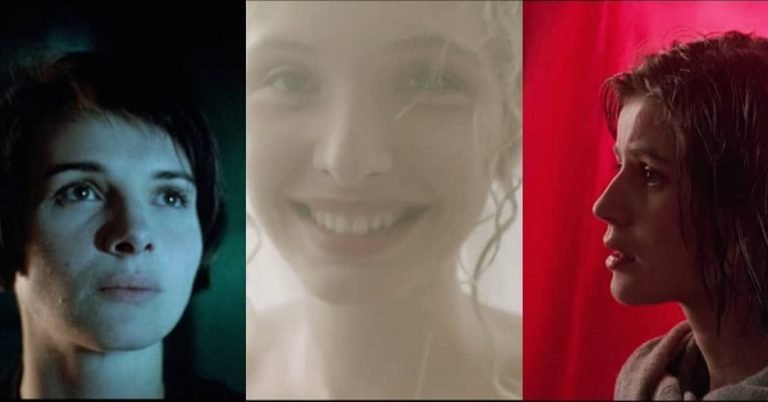
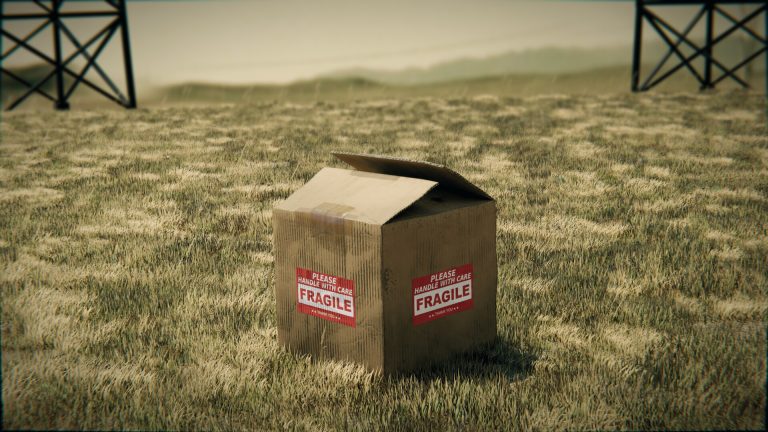
![Garm Hava [1974]: On the Precipice of Belonging](https://79468c92.delivery.rocketcdn.me/wp-content/uploads/2021/05/Garm-Hava-768x432.jpg)
